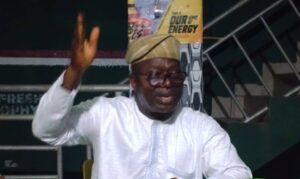
Joyce Mmereole Okoli
A retired Deputy Comptroller of Customs, Mr. Yahaya Oladiran Idris, has called on the Federal Government, Lagos State Government, and the promoters of the Badagry Deep Seaport to address unresolved issues hindering the project’s progress, emphasizing the need for the port to commence operations in 2025.
Speaking as the President of the Badagry Chamber of Commerce, Industry, Mines, and Agriculture (BACCIMA), Mr. Oladiran made the appeal during a meeting with the executive members of the Maritime Reporters Association of Nigeria (MARAN) at their retreat in Badagry.
Highlighting the economic significance of the proposed deep seaport, Mr. Oladiran stated that Badagry’s strategic location, vibrant infrastructure, and access to regional markets make it an ideal hub for international trade.
“Badagry is the superhighway to ECOWAS and Europe, and it is home to Nigeria’s most significant border post, Seme Border,” he said.
“With excellent intermodal transportation systems, including waterways and the Lagos-Sokoto Expressway, the port can serve as a transshipment hub for landlocked countries like Niger Republic and Chad.”
He also noted that the port would reduce smuggling activities by at least 20% and attract significant investments to the area, creating job opportunities for artisans, vendors, and other stakeholders.
On the question of whether Badagry needs another deep seaport given the existence of the Lekki Deep Seaport, Mr. Oladiran argued that the vast market potential of Lagos State justifies the development of multiple ports.
“The promoters must have conducted extensive feasibility studies before proposing the Badagry Deep Seaport,” he stated.
Mr. Oladiran also addressed challenges related to Nigeria’s border policies, particularly the closure of land borders to vehicle imports. He highlighted the porosity of the borders and the revenue losses caused by smuggling, urging the Federal Government to reopen the borders to reduce smuggling and prevent the loss of lives among customs officers chasing smugglers.
On trade facilitation, he called for greater honesty among importers and improved coordination among regulatory agencies such as NAFDAC and SON to avoid delays and multiple charges.
“Trade facilitation is a collective responsibility among importers, agents, Customs, and other stakeholders. Transparency and clear delineation of functions are key,” he said.
Mr. Oladiran praised the leadership of the Nigeria Customs Service under Comptroller General Adewale Adeniyi for prioritizing the welfare and promotions of officers, noting that this has boosted morale among personnel.
As discussions on the Badagry Deep Seaport continue, stakeholders remain hopeful that resolving the outstanding issues will pave the way for the project to become a reality by 2025, significantly enhancing Nigeria’s maritime and trade sectors.

